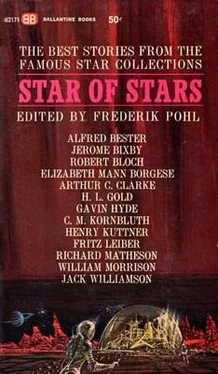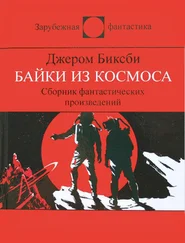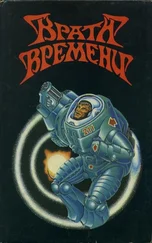Afterward everybody wished that the brandy hadn’t been brought out. Because Dan Hollis drank more of it than he should have, and mixed it with a lot of the homemade wine. Nobody thought anything about it at first, because he didn’t show it much outside, and it was his birthday party and a happy party, and Anthony liked these get-togethers and shouldn’t see any reason to do anything even if he was listening. But Dan Hollis got high, and did a fool thing. If they’d seen it coming, they’d have taken him outside and walked him around.
The first thing they knew, Dan stopped laughing right in the middle of the story about how Thelma Dunn had found the Perry Como record and dropped it and it hadn’t broken because she’d moved faster than she ever had before in her life and caught it. He was fondling the record again, and looking longingly at the Fremonts’ gramophone over in the corner, and suddenly he stopped laughing and his face got slack, and then it got ugly, and he said, “Oh, Christ!”
Immediately the room was still. So still they could hear the whirring movement of the grandfather’s clock out in the hall. Pat Reilly had been playing the piano, softly. He stopped, his hands poised over the yellowed keys.
The candles on the dining-room table flickered in a cool breeze that blew through the lace curtains over the bay window.
“Keep playing, Pat,” Anthony’s father said softly.
Pat started again. He played “Night and Day,” but his eyes were sidewise on Dan Hollis, and he missed notes.
Dan stood in the middle of the room, holding the record. In his other hand he held a glass of brandy so hard his hand shook.
They were all looking at him.
“Christ,” he said again, and he made it sound like a dirty word. Reverend Younger, who had been talking with Mom and Aunt Amy by the dining-room door, said “Christ,” too—but he was using it in a prayer. His hands were clasped, and his eyes were closed.
John Sipich moved forward. “Now, Dan. It’s good for you to talk that way, but you don’t want to talk too much, you know.”
Dan shook off the hand Sipich put on his arm.
“Can’t even play my record,” he said loudly. He looked down at the record, and then around at their faces. “Oh, my God—” He threw the glassful of brandy against the wall. It splattered and ran down the wallpaper in streaks.
Some of the women gasped.
“Dan,” Sipich said in a whisper. “Dan, cut it out.”
Pat Reilly was playing “Night and Day” louder, to cover up the sounds of the talk. It wouldn’t do any good, though, if Anthony was listening. Dan Hollis went over to the piano and stood by Pat’s shoulder, swaying a little. “Pat,” he said, “don’t play that. Play this.” And he began to sing, softly, hoarsely, miserably, “Happy birthday to me, happy birthday to me . . .“
“Dan!” Ethel Hollis screamed. She tried to run across the room to him. Mary Sipich grabbed her arm and held her back. “Dan,” Ethel screamed again, “stop—”
“My God, be quiet!” hissed Mary Sipich, and pushed her toward one of the men, who put his hand over her mouth and held her still.
happy birthday, dear Danny,” Dan sang, “happy birthday to me!” He stopped and looked down at Pat Reilly. “Play it, Pat. Play it, so I can sing right. You know I can’t carry a tune unless somebody plays it!”
Pat Reilly put his hands on the keys and began “Lover”—in a slow waltz tempo, the way Anthony liked it. Pat’s face was white. His hands fumbled.
Dan Hollis stared over at the dining-room door. At Anthony’s mother, and at Anthony’s father, who had gone to join her. “You had him,” he said. Tears gleamed on his cheeks as the candlelight caught them. “You had to go and have him . . .“ He closed his eyes, and the tears squeezed out. He sang loudly, “You are my sunshine . . . my only sunshine . . . you make me happy . . . when I am blue . . ."
Anthony came into the room.
Pat stopped playing. He froze. Everybody froze. The breeze rippled the curtains. Ethel Hollis couldn’t even try to scream—she had fainted.
". . . please don’t take my sunshine . . . away . . .“ Dan’s voice faltered into silence. His eyes widened. He put both hands out in front of him, the empty glass in one, the record in the other. He hiccuped and said, “No—”
“Bad man,” Anthony said, and thought Dan Hollis into something like nothing anyone would have believed possible, and then he thought the thing into a grave deep, deep in the cornfield.
The glass and the record thumped on the rug. Neither broke.
Anthony’s purple gaze went around the room.
Some of the people began mumbling. They all tried to smile. The sound of mumbling filled the room like a far-off approval. Out of the murmuring came one or two clear voices:
“Oh, it’s a very good thing,” said John Sipich.
“A good thing,” said Anthony’s father, smiling. He’d had more practice in smiling than most of them. “A wonderful thing.”
“It’s swell . . . just swell,” said Pat Reilly, tears leaking from eyes and nose, and he began to play the piano again, softly, his trembling hands feeling for “Night and Day.”
Anthony climbed up on top of the piano, and Pat played for two hours.
Afterward, they watched television. They all went into the front room, and lit just a few candles, and pulled up chairs around the set. It was a small-screen set, and they couldn’t all sit close enough to it to see, but that didn’t matter. They didn’t even turn the set on. It wouldn’t have worked anyway, there being no electricity in Peaksville.
They just sat silently, and watched the twisting, writhing shapes on the screen, and listened to the sounds that came out of the speaker, and none of them had any idea of what it was all about. They never did. It was always the same.
“It’s real nice,” Aunt Amy said once, her pale eyes on the meaningless flickers and shadows. “But I liked it a little better when there were cities outside and we could get real—”
“Why, Amy!” said Mom. “It’s good for you to say such a thing. Very good. But how can you mean it? Why, this television is much better than anything we ever used to get!”
“Yes,” chimed in John Sipich. “It’s fine. It’s the best show we’ve ever seen!”
He sat on the couch with two other men, holding Ethel Hollis flat against the cushions, holding her arms and legs and putting their hands over her mouth so she couldn’t start screaming again.
“It’s really good!” he said again.
Mom looked out of the front window, across the darkened road, across Henderson’s darkened wheat field to the vast, endless, gray nothingness in which the little village of Peaksville floated like a soul—the huge nothingness that was most evident at night, when Anthony’s brassy day had gone.
It did no good to wonder where they were—no good at all. Peaksville was just someplace. Someplace away from the world. It was wherever it had been since that day three years ago when Anthony had crept from her womb and old Doc Bates—God rest him—had screamed and dropped him and tried to kill him, and Anthony had whined and done the thing. Had taken the village someplace. Or had destroyed the world and left only the village, nobody knew which.
It did no good to wonder about it. Nothing at all did any good—except to live as they must live. Must always, always live, if Anthony would let them.
These thoughts were dangerous, she thought.
She began to mumble. The others started mumbling, too. They had all been thinking, evidently.
The men on the couch whispered and whispered to Ethel Hollis, and when they took their hands away she mumbled, too.
Читать дальше


![Джером Биксби - Забытые имена [антология]](/books/26262/dzherom-biksbi-zabytye-imena-antologiya-thumb.webp)
![Джером Биксби - На суше и на море [1970]](/books/26417/dzherom-biksbi-na-sushe-i-na-more-1970-thumb.webp)


![Джером Биксби - Врата времени [Сборник англо-американской фантастики]](/books/419866/dzherom-biksbi-vrata-vremeni-sbornik-anglo-thumb.webp)
